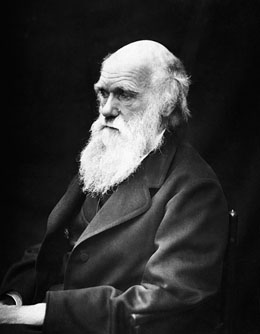Evolution of the evolutionary mind

The human mind may not be the end result of Stone Age evolution, but varies flexibly from person to person and place to place, with people directing their own development, according to research at the University of St Andrews.
Experts in biology, psychology and philosophy from universities across Europe have concluded the idea of a universal human nature shaped by Stone Age conditions is wrong.
Previously, evolutionary psychologists theorised that the brain functioned with a number of dedicated programmes, which had evolved through natural selection, to solve specific problems faced by human ancestors.
However, senior author Professor Kevin Laland of St Andrews’ School of Biology department believes that conclusion is now “questionable”.
In an article just published (July 19) in the online, open access journal PLoS Biology, a team of biologists, psychologists and philosophers from the University of Utrecht in the Netherlands, the University of Cincinnati in America, and the University of St Andrews in Scotland, suggest a new framework for the evolutionary analysis of the mind drawing on recent work.
Professor Laland, and Dr Gillian Brown of the School of Psychology of St Andrews, and colleagues, described how evolutionary psychology had been dominated by the widely held assumptions that human behaviour is unlikely to be adaptive in modern environments, that human cognition is task-specific, and that there is a universal human nature.
However, new findings and approaches from genetics, neuroscience and evolutionary biology now question these assumptions.
For example, many human genes have been subject to recent selection in the past few thousand years, which means that humans cannot accurately be portrayed as being adapted only to a Stone Age environment.
Experimental and theoretical findings also suggest that humans play an active, constructive role in co-directing their own development and evolution.
How humans think and behave varies from individual to individual and place to place. Moreover, experimental evidence suggests that human minds frequently use very general learning rules, rather than a more modular account of cognition.
Professor Laland, former president of the European Human Behaviour and Evolution Association, said: “The current evolutionary psychology paradigm made sense in the 1980s, when modularity of mind was all the rage and everyone thought that evolution was slow.
“However, with the benefit of hindsight we can see that these assumptions were questionable, and is now clear that the field needs a broader, theoretical framework.
“Recent developments in evolutionary & developmental biology and cognitive science provide some very exciting new avenues for research. We enter a new phase in the discipline.”
ENDS
Note to Editors
Dr Kevin Laland is available for interview after 3.30pm on 01334 403568.
Dr Gillian Brown, of the School of Psychology is available for interview after 3.30pm on 01334 463041/ 07989 387735.
The Journal’s website is at: www.plosbiology.org/home.action
Issued by the Press Office, University of St Andrews
Contact Fiona MacLeod on 0779 6484 194
Ref: (evolution 19/07/11)
View the University’s latest news at http://www.st-andrews.ac.uk/news/
Category Research